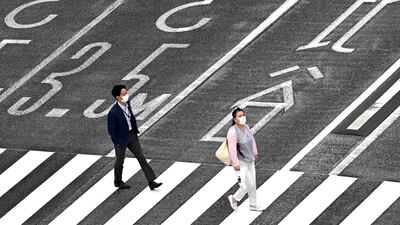Japan’s government has approved a plan to lift the state of emergency in Tokyo, its surrounding regions and the northern island of Hokkaido as new virus cases tail off. The decision paves the way for Prime Minister Shinzo Abe to declare an end to restrictions and allow businesses to gradually resume.
The government will put the issue to a panel of advisers on Monday, public broadcaster NHK reported, with the move set to bring the state of emergency in the country to an end a week ahead of schedule.
Tokyo reported 14 new coronavirus cases on Sunday, the highest since May 16, after just two cases were confirmed on Saturday. The total for the past seven days is 50, below the threshold of 70, or 0.5 people per 100,000, which the government has set as a requirement before lifting the emergency.
“The number of infections is decreasing day by day. That can be seen even in areas where the state of emergency is still in effect,” Health Minister Katsunobu Kato said. “The situation of the outbreak is improving, and the pressure on the medical system is being relieved.”
Japan has reported 16,550 cases in total, with 820 deaths from the virus.
Mr Nishimura said lifting the emergency does not mean the end of the pandemic. He said the goal is to minimise possible recurrences of infection while balancing preventive measures and the economy.
Mr Abe declared the state of emergency on April 7. Unlike the European-style hard lockdowns, which are not legally possible in Japan, the country's state of emergency is soft and largely a request for people to stay at home and non-essential businesses to close or reduce hours.
Civil liberties enshrined in Japan's postwar constitution prevent a hard lockdown like those seen elsewhere.
Tokyo and its three neighbouring prefectures are to reopen schools, public facilities and businesses in phases in coming weeks while watching for any signs of an infection resurgence.
Tokyo Governor Yuriko Koike has laid out guidelines for reopening the economy as people gradually resume activities kept on hold for almost seven weeks. Neighbouring South Korea has already seen a major cluster spread among nightclub-goers after loosening restrictions. Meanwhile, Mr Abe has vowed to work with regional governments to prepare for a second wave of infections that experts say is almost inevitable.

